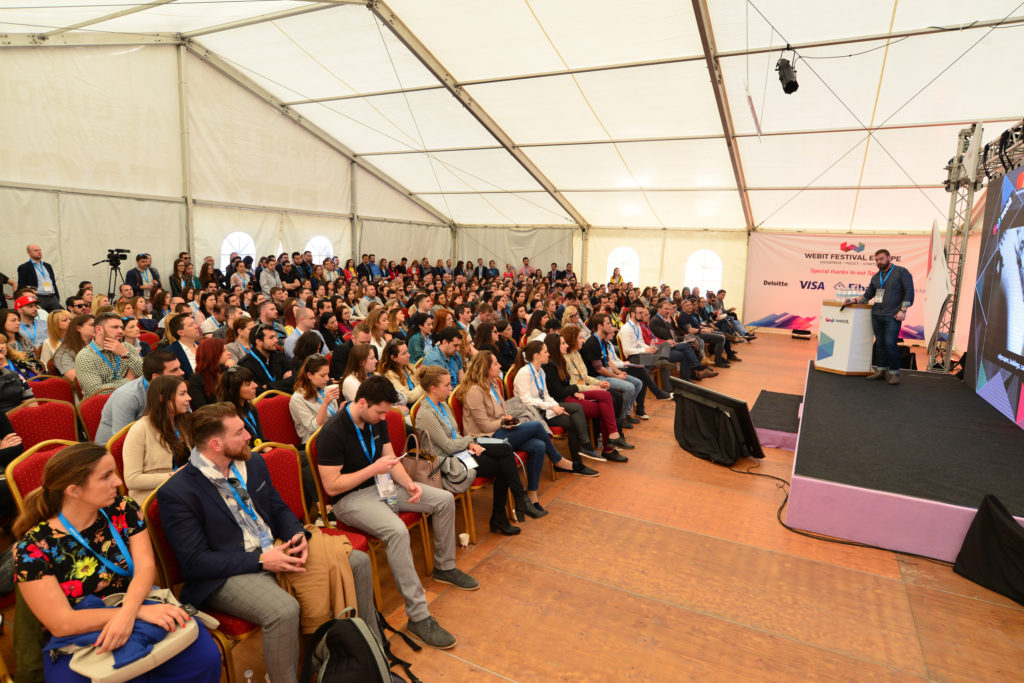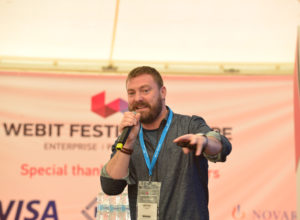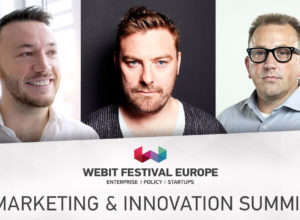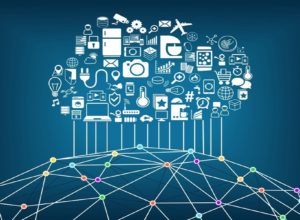Tag: Internet
How the Internet took away our ability to understand the world...
Over the past few decades the art of marketing has developed in an increasingly globalized world - a trend, that was only accelerated by the emergence of internet and digital technology. During that period of time we had almost a global liberal consensus, both politically and socially, about the path our world must take. But right now it looks like this world order is on its way to an inevitable collapse and this is something that leads to a massive change the way the companies are approaching consumers.
A lot of the brands that we know today took over in the last 25 years and were built on the basis of a global and unified world. In the reality now this is no longer true, because we realized that this concept can’t hold. There are people and constituencies around the world who had been left behind by globalization, who haven’t received benefits as much as other groups. And as a result of that we have the rise of populism. It has given us Trump in the USA, it has given us Brexit in the UK and perhaps even more horribly the phenomenon of grabbing power in Turkey.
During the recent Webit.Festival Europe we had the chance to hear these trends explained by the Chief Creative Officer of DigitasLBi Chris Clarke. During his presentation he talked about the death of empathy in the information age and shared his vision on the changes that needs to be made in order to protect our society from the dark and unintended consequences of the idea of free information.
 The Chief Creative Officer of DigitasLBi Chris Clarke[/caption]
Back in 2012 when Instagram was bought by Facebook for a $1 billion was the year when Kodak went bust. In its peak Kodak employed 300 000 people around the world and it made revenues of $3-4 billion a year. When Instagram was bought for a billion Instagram had 30 employees and made revenues of $0. So there are some major challenges in terms of value destruction, as well as value creation when it comes to digital disruption.
As someone who describes himself as a cheerful dystopian, he warned that marketers must think about the impact of their works when advising brands about the brightest ways to operate in this space. Because the development of internet did not give control to the consumers - it took it away from them.
Today we are checking our phones regularly even when we should be playing with our children. The reason for this is the addiction we develop, because of the dopamine reward that the usage of different platforms is giving us.Clarke describes the social media and global businesses like Google and Facebook as the best system of population control ever invented.
The Chief Creative Officer of DigitasLBi Chris Clarke[/caption]
Back in 2012 when Instagram was bought by Facebook for a $1 billion was the year when Kodak went bust. In its peak Kodak employed 300 000 people around the world and it made revenues of $3-4 billion a year. When Instagram was bought for a billion Instagram had 30 employees and made revenues of $0. So there are some major challenges in terms of value destruction, as well as value creation when it comes to digital disruption.
As someone who describes himself as a cheerful dystopian, he warned that marketers must think about the impact of their works when advising brands about the brightest ways to operate in this space. Because the development of internet did not give control to the consumers - it took it away from them.
Today we are checking our phones regularly even when we should be playing with our children. The reason for this is the addiction we develop, because of the dopamine reward that the usage of different platforms is giving us.Clarke describes the social media and global businesses like Google and Facebook as the best system of population control ever invented.
“We are experiencing great social changes and they are completely changing the way brands need to communicate. Only 17 years ago the most powerful computer in the world was called the Big Red and was about the size of a room. Six years later the same processing power was available in the Sony PlayStation 3 and now it is available in the smartphones in our pockets”, he said.According to Clarke now it is almost impossible for any person or organization to really know what is happening in the world. The pace of change is very fast that it is almost impossible for governments and legislation to keep up. We have a growth of massive digital businesses that have disrupted whole industries and this comes with a big prize that someone has to pay. When The Cluetrain Manifesto, often regarded as the Bible for digital disruption, was released in 2009 we all took for granted the notion that information wants to be free and the idea of free content online. Now we can see that while the industrial disruption can create great opportunities, the problem is that the disrupted industries have not really been replaced in terms of jobs. We have the challenge that economists describe as “premature deindustrialization”. A developing country, like India for example, is trying hard to get the people out of the fields and put them into factories. But now the factories are operated by machines and apps, so they have to get people out of the fields and put them into educational institutions to teach them about software development, which is much bigger leap. That caused huge challenges and countries are struggling to keep up. [caption id="attachment_5006" align="aligncenter" width="640"]
 The Chief Creative Officer of DigitasLBi Chris Clarke[/caption]
Back in 2012 when Instagram was bought by Facebook for a $1 billion was the year when Kodak went bust. In its peak Kodak employed 300 000 people around the world and it made revenues of $3-4 billion a year. When Instagram was bought for a billion Instagram had 30 employees and made revenues of $0. So there are some major challenges in terms of value destruction, as well as value creation when it comes to digital disruption.
As someone who describes himself as a cheerful dystopian, he warned that marketers must think about the impact of their works when advising brands about the brightest ways to operate in this space. Because the development of internet did not give control to the consumers - it took it away from them.
Today we are checking our phones regularly even when we should be playing with our children. The reason for this is the addiction we develop, because of the dopamine reward that the usage of different platforms is giving us.Clarke describes the social media and global businesses like Google and Facebook as the best system of population control ever invented.
The Chief Creative Officer of DigitasLBi Chris Clarke[/caption]
Back in 2012 when Instagram was bought by Facebook for a $1 billion was the year when Kodak went bust. In its peak Kodak employed 300 000 people around the world and it made revenues of $3-4 billion a year. When Instagram was bought for a billion Instagram had 30 employees and made revenues of $0. So there are some major challenges in terms of value destruction, as well as value creation when it comes to digital disruption.
As someone who describes himself as a cheerful dystopian, he warned that marketers must think about the impact of their works when advising brands about the brightest ways to operate in this space. Because the development of internet did not give control to the consumers - it took it away from them.
Today we are checking our phones regularly even when we should be playing with our children. The reason for this is the addiction we develop, because of the dopamine reward that the usage of different platforms is giving us.Clarke describes the social media and global businesses like Google and Facebook as the best system of population control ever invented.
“People like to talk about the Arab spring as being a wonderful moment of social media giving start to great rebellion. But it didn’t exactly end up well, did it? Because even as Facebook is quite good for helping us organize ourselves, it’s pretty rubbish when we have to come up with alternative to a theocratic state, like Iran for example. People there are not thinking deeply about their issues, they are liking, passing on information, getting that quick dopamine reward and then moving on”, he said.The fact that most of the platforms we consume information from are tailored for us creates filter bubbles that took away from us the idea of what people, who are not like us, are reading or experiencing. This is why for many people it was surprise that Brexit and Trump happened - because these major world shaking events are forming inside someone else’s bubble. It is therefore impossible for a brand to address everybody with one campaign idea globally. Because each filter bubble is unique. Couple of years ago Google’s Executive Chairman Eric Schmidt predicted that it will be very hard for people to watch or consume something that is not in some sense been tailored for them. But despite this negative trends, Clarke is sure that the massive polarization of audiences gives the big brands a chance to stand up and be the driver behind the positive change in the world. The reason is that it is really difficult to mean something to anybody when you are occupying the middle space that is now disappearing. Right after Donald Trump introduced his Muslim ban in the USA, many brands stood up against this, risking to alienate part of their audiences and saying that money are less important than values. This is something that we did not often see in the past and can be an opportunity to have a real impact in the society.
“I genuinely think that there is a fantastic opportunity if we think in the right way of how the internet is configured, if we question it, if we don’t just pretend that the customer is in control, if we don’t just pretend it is all about democracy and laugh. If we recognize some of the darker sides of what we are building we can change it and make it better. And I think that brands have a fantastic role to play in that”, Chris Clarke said.You may watch his full lecture here: If you want to keep up with the latest trend in the world of digital economy and technology, then Webit.Festival is the right place for you. Visit our website and book 2 of our Super Earlybird tickets for Webit.Festival Europe 2018 for just €100. Feel the Webit vibe with some of the best photos from this year’s event! [easingslider id="4954"]
Learn how to build your marketing strategy from industry’s best at...
Our life today is more dynamic than it was at any point in history and none of our days is like the previous one. In the world of business this new form of operation speed is both a gift and a curse depending on your company’s ability to adapt to the social and economic changes and use the full potential of the new environment.
In 2017 serious marketers use every tool in the kit, from native ads and influencer channels to visual storytelling and now or never expiring content. The biggest trends in the industry will help these expert engage consumers more directly by increasing their marketing reach.
At this year’s Webit.Festival you can listen to some of the top marketers in the world. During the Marketing & Innovation Summit of the event they will share their thoughts on topics, such as Programmatic, Mobile, Video and Native Advertising, Brand Strategies, Metrix & Data, Mobile Marketing, OmniChannel & Personalisation Strategies and Media & Digital Entertainment.
Their insight information will help you transform your business into the enterprise of tomorrow and will give you the best tools to increase your performance.
As more and more brands learn the true value of content, our lives are becoming increasingly over-saturated in information. This means the competition for our attention has never been greater and getting eyes on your content is no longer good enough. The design director of TBrand Studio International Graham McDonnell will tell us more about the importance of the story in storytelling.
The President and Global Brand Director of Havas Worldwide Jason Jercinovic will talk about the rise of Artificial Intelligence and its role in today’s politics and political marketing. Meanwhile, the CMO of Selligent Nick Worth will tell us more about marketing automation and the use of AI.
During the Brand Strategies track, the Chief Creative Officer at DigitasLBi Chris Clarke will tell us more about the death of empathy in marketing and why global brand consistency doesn’t matter anymore. Chris is a member of the Campaign A-List and was recently placed at #53 in The Drum’s Adverati, a list of the most influential people in advertising.
Twice Reply’s Managing director for digital transformation Volker Glaeser will inform you how new innovation processes can change the digital world and what are the most efficient ways of creating and testing future products. The German expert will explain the two most important approaches of today’s leading global innovators - Rapid Prototyping and Constant Beta.
The General manager of Advertising at Phunware Jon Hook will talk about the changing landscape of mobile advertising, what are the best ways to adapt your strategy to that change and where are the biggest gaps when starting a mobile ad tech business.
Meanwhile the Global chief strategy and digital officer at Mindshare Norm Johnston will explain the exploding market of connected devices and how to use the marketing opportunities it brings to better connect and service consumers. In his session, Norm will share examples from his recent book Extra Sense, which illustrate how marketers are exploring the post-mobile third wave of digital marketing.
Here you can see a full list of the confirmed speakers at Webit.Festival, while here you can get all the information you need about the tickets for the event.
Finding the right balance between privacy and security online
The era of omnipresent Internet is said to bring 24 billion IoT devices, as well as $1 trillion spent on cyber security from 2017 to 2021.
As we take a look at what happens in the global landscape, we can clearly see that what matters the most, is information. What is the most expensive, and not just in terms of business, is data. It’s no surprise, then, that preventing the stealth and uncontrolled usage of those plays uprising role in the era.
Experts predict that this year we will see huge leaps in terms of cyber security. Within the next years, companies will more and more rely on software solutions, ensuring automation of privacy. Also, business decisions will be more informed and backed on freely accessible, but accurate and protected data. Realizing the importance of data protection, global regulatory bodies promised a new privacy regulation to be developed and implemented in 2017, too.
The world may spend undisclosed amount of money on things that just don’t matter, but cyber security isn’t one in that row. And while business solutions are much more expertise and any other sources requiring, individual decisions are much easier to start with. If you could be your own cyber security advisor, what would you do to make secure yourself, as an individual first?
Basic rules you could follow to make sure you’re cyber-protected, are to use different email accounts for usual communication and for sensitive information, to not click on any flashing links of suspicious emails in your inbox, to choose wisely the passwords you use, to make sure the kids use different computer to download games, to watch out what you download and open on your smartphone.
When talking about cyber security, a key fact we all need to understand sooner or later, is that personal data is the price we pay for enjoying a huge amount of internet and mobile features. Underestimating its value and giving it away, knowingly or not, is definitely not the best thing you can do for yourself.
Would you let this app to access your location, files, Wi-Fi connection and calls log? To access this website, you should first read and accept the terms and conditions. We know you want to keep it, but would you share your privacy with us by just clicking here?
This is a small part of the questions you’ll be asked in order to register on a website or a mobile app. And most of us would instantly respond “Yes” without even reading. The privacy policies of the websites explain how gathered data will be used - selling, targeting, development of new tools and apps. But truth is, no one reads them carefully, as the websites usually want us to do.
In our connected world, conscientious and strategic steps to ensure cyber security are needed both by customers and by businesses. While for most of the companies IT departments were in charge of it so far, cyber security is a matter of business, not of IT solutions.
To learn more on the topic of cyber security and privacy, visit the Security & Privacy Summit within Webit.Festival Europe. During 25 and 26th April 2017 in Sofia top level speakers from all over the world will share their experience. You can listen to Ulrich Seldeslachts, CEO of LSEC-Leaders In Security; Raj Samani, CTO EMEA of Intel Security and Rami Essaid, Co-Founder of Distil Network.
IoE makes us dream of a more connected tomorrow
We are living in the time of the Fourth Industrial Revolution - a process that unites biological, digital and physical spheres. And perhaps the most important condition for unfolding of this process is the coming age of Internet of Everything (IoE).
According to most experts, it will bring an enormous shift on our way of living, solving problems and creating value for business. In the near future our cars, houses, fridges, stoves, light bulbs, clothes and visual devices will all be interconnected.
This has the potential to create new capabilities, richer experiences and unprecedented economic opportunity for businesses, countries and individuals.
A Business Insider analysis calculates that by 2020 there will be around 34 billion devices connected to internet worldwide, compared to 10 billion in 2015. Internet of Things (IoT) devices will account for 24 billion, while traditional computing devices as smartphones and tablets will be around 10 billion.
Over the next five years the market for IoT solutions will reach nearly $6 trillion. Business is looking like the top customer of this kind of products because of the perspective for lowering of operation costs, increased productivity and expanding to new markets.
By year 2020 more than 5 billion people will be connected to the web. This is nearly seven times more than their number in 2000. The new internet users will come mainly from Africa and Asia and their connection will be mobile. This creates entirely new economic reality, which is already happening.
Just yesterday the idea of smart homes was interesting mostly for geeks and wealthy executives from the tech industry. But platforms like Amazon’s Alexa are soon going to make this concept affordable for nearly everyone in the developed world.
With the coming of more people online, companies like Google are trying to make their services more accessible with smaller apps for budget devices and offline support.
Today the tech giant announced that its Google search app for Android will save our queries while we are offline and deliver the results when our internet connection is established again.
As Android is the most used operating system in developing economies where the internet quality is low this new feature will be pretty helpful for the millions of new users. Soon the company is going to apply it for iOS too.
Meanwhile, Google is working with LG on producing the first Android Wear 2.0 devices - the LG Watch Sport and LG Watch Style. The smartwatches will be revealed on February 9. Both devices have options for Wi-Fi and Bluetooth connectivity, while the sport model features cellular connectivity with 3G and LTE data, as well as GPS.
As for now the expansion of wearables benefits mostly retailers and technological businesses, but the new features in these devices have the potential to improve our day-to-day activities and quality of life.
IoE will make us more self aware in every life aspect of life, from eating habits and sport to management of our home and finances.
You can learn more about the rise of mobile tech, sharing of information and connected devices during Webit.Festival 2017. During the two-day agenda of the festival in Sofia you can listen to top level speakers from all over the world, who will share their experience on topics, such as Marketing & Innovation, Big Data & Cloud, IoE, Digital Transformation, FinTech & Blockchain, Security & Privacy, Health & Wellbeing and Mobility.



